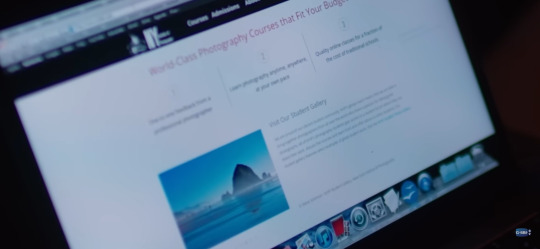#website developers in Thailand
Explore tagged Tumblr posts
Text
DATING GAME starring Snow Man Koji, March Chutavuth, Judo Tantachj, Fluke Natouch, releases a new poster and characters' first look
Synopsis: Hill, a former bullied boy with a geeky personality, finds love and confidence from "Yuka" in the female character romance simulation game "Yuka! Love Me Please" and grows into a handsome programmer beyond recognition. Hill achieves his dream of getting a job at the company that developed "Yuka! Love Me Please", where he meets Junji, the perfect, cold-hearted CEO from Japan. Soon after getting the job, the company announces that it will be ending service for the game, leaving Hill dejected. Seeing his passion to move forward despite his heartache, Junji approaches Hill with a proposition.

Official Website Introduction
Mukai Koji, a member of Japan's top idol group "Snow Man," is the first Japanese actor to star in a Thai drama, acting entirely in Thai, and co-stars with talented Thai actor March Chutavuth Pattarakhumphol. Also starring in the film are other popular and talented actors in Thailand, including Fluke Natouch Siripongthon and Judo Tantachj Tharinpirom, who have many fans in Japan.
The production team is also made up of some of Thailand's best creators. The script was written by a creative team that worked on iconic Thai BL dramas such as the heart-pounding new generation BL dramas "Cutie Pie" and "Close Friend." In addition, the project collaborated with May [Piangpaitoon], a talented screenwriter who has produced many masterpieces, and All-Write Team. The story depicts two people with different values, from Japan and Thailand, meeting and deepening their bond despite their differences, weaving a sometimes humorous and sometimes heart-wrenching tale that transcends the barriers of countries and cultures and leaves a warm impression in the hearts of viewers.
Relationship Chart

March Chutavuth plays Hill, a game designer who falls for a girl in a game but ends up creating a game to date… guys?!

Koji Mukai plays Junji, the cool Japanese CEO who unexpectedly catches feelings for the new guy.

Judo Tantachj plays Bay, the confident ladies’ man who gets assigned to design a dating game for guys.

Fluke Natouch plays Phat, the anti-playboy chef who’s not here for any Casanova games.

A sneak peak of Dating Game on the national Japanese morning news today
Dating Game Worship Ceremony and Press Conference
youtube
Japanese poster has additional sub title “Boss, Can I flirt with you!?”

Dating Game has recently wrapped filming and is expected to be broadcast on Workpoint TV soon.


Sources: Official Website, Thai Twitter account, Japanese Twitter Account
#dating game#dating game the series#march chutavuth#mukai koji#snow man#snowman#fluke natouch#judo tantachj#workpoint tv#thai bl#bl series#usergzh#judofluke#kojimarch#im just guessingggggg#Youtube
110 notes
·
View notes
Text
youtube
✅ Making cities resilient to floods
About 44% of all disaster events around the world are flood-related.
In our new explainer episode, we show how ‘sponging’ cities can help them overcome the challenge of flooding while strengthening the local ecology, and boosting the economic and social well-being of residents.
In this episode, you will learn:
🟡 What a sponge city is (and how it works)
🟡 The benefits of ‘sponging’ cities (beyond flood-resilience)
🟡 Projects that demonstrate the principles and benefits of a sponge city at various scales (and what we can learn from them)
🟡 Why developers should be in favour of sponge city initiatives (they can save millions in costs)
And much more!
💚 If you gain value from this conversation, we hope you will subscribe to the channel 💚
Thank you to Holcim Foundation for Sustainable Construction for supporting season 5 of Ecogradia.
----------------------------------------------------------------------
Timestamps
00:00 Intro
01:43 What is a sponge city?
02:08 Features of a sponge city
04:16 Is 'sponging' expensive?
04:44 Benefits of a sponge city
08:19 The man who pioneered sponge cities
09:01 Yanweizhou Park | Jinhua, China
09:46 Why Bangkok and Jakarta are sinking
10:39 Tebet Eco Park | Jakarta, Indonesia
11:36 Chulalongkorn University Centenary Park | Bangkok, Thailand
12:13 Copenhagen's Cloudburst Management Plan
13:14 Sankt Kjelds Plads | Copenhagen, Denmark
14:06 How sponge cities can profit: Bishan-Ang Mo Kio Park | Singapore
15:46 How sponge cities can profit: Portland | USA
16:21 Outro
----------------------------------------------------------------------
This episode features the following projects:
Yanweizhou Park | Jinhua, China (2014)
Designed by Turenscape
Tebet Eco Park | Jakarta, Indonesia (2022)
Designed by SIURA Studio
Chulalongkorn University Centenary Park | Bangkok, Thailand (2017)
Designed by LANDPROCESS
Sankt Kjeld's Square & Bryggervangen | Copenhagen, Denmark (2019)
Designed by SLA
Bishan-Ang Mo Kio Park | Singapore (2012)
Designed by Henning Larsen
Also featuring:
Fish Tail Park | Nanchang, China (2022)
Designed by Turenscape
Benjakitti Park | Bangkok, Thailand (2022)
Designed by Turenscape + Arsomsilp Community and Environmental Architect
Hunter’s Point South Waterfront Park | New York City, USA (2018)
Designed by SWA/Balsley + Weiss/Manfredi in collaboration with Arup
Houtan Park | Shanghai, China (2010)
Designed by Turenscape
High Plains Environmental Center | Loveland, USA
Designed by Hauser Architects
Thammasat Urban Rooftop Farm | Bangkok, Thailand (2019)
Designed by LANDPROCESS
Khoo Teck Puat Hospital | Singapore (2010)
Designed by CPG Consultants in collaboration with RMJM Architecture
Shangrao Xinjiang Ecological Park | Shangrao, China
Designed by Turenscape
Telok Blangah Hill Park | Singapore
Interlace Apartments | Singapore (2013)
Designed by OMA in collaboration with RSP
Jiangsu—Victoria Sponge City Innovation Park | Kunshan, China
Designed by CRC for Water Sensitive Cities
Quzhou Luming Park | Quzhou, China (2015)
Designed by Turenscape
OCT OH BAY Retail Park | Shenzhen, China (2021)
Designed by Laguarda.Low Architects
Tanghe 'Red Ribbon' Park | Qinhuangdao, China (2007)
Designed by Turenscape
Sanya Mangrove Park | Sanya, China (2019)
Designed by Turenscape
----------------------------------------------------------------------
We are also available on
Spotify: https://open.spotify.c...
Apple podcasts: https://podcasts.apple...
Website
https://www.ecogradia....
Read about sustainable projects on
https://www.ecogradia....
Subscribe to our fortnightly newsletter
https://ecogradia.us5....
No spamming here! :)
----------------------------------------------------------------------
Follow us on 🖱️
Instagram:  / ecogradia
LinkedIn:  / ecogradia
Twitter: https://x.com/Ecogradia
#Ecogradia #Sustainability #Architecture #SpongeCity #FloodproofCity #ResilientCity #FloodProofCity #GreenSpace
[sustainability, architecture, sponge city, green spaces, floodproof city, resilient city]
#Ecogradia#solarpunk#sponge city#floods#flood#climate crisis#climate change#climate collapse#global heating#global warming#green infrastructure#blue infrastructure#China#Indonesia#thailand#denmark#Singapore#USA#Youtube
18 notes
·
View notes
Text
BRICS launches competition for women-led startups

The Brazilian presidency of BRICS – a bloc currently comprising 11 countries – is launching a competition to boost female entrepreneurship as a driver of economic development and sustainable innovation. The initiative aims to highlight women-led businesses that provide practical and innovative solutions to challenges faced by their communities and markets. Applications are open until May 4, 2025, and must be submitted through the official website of the Brazilian presidency of the bloc.
The BRICS Women’s Startups Contest 2025, as the competition is called, is held in collaboration with Sebrae, which promotes the competitiveness of small businesses, industry group CNI, and the BRICS Women Business Alliance (BRICS WBA). The initiative aims to attract up to 2,000 applications, highlighting the reach and significance of the action in strengthening female entrepreneurship.
The competition is open to women-led startups from BRICS member countries (Brazil, Russia, India, China, South Africa, Egypt, Ethiopia, Indonesia, Saudi Arabia, Iran, and the United Arab Emirates) and partner nations (Belarus, Bolivia, Kazakhstan, Cuba, Malaysia, Nigeria, Thailand, Uganda, and Uzbekistan). Startups from Kyrgyzstan, Mozambique, Lesotho, Zambia, and Zimbabwe may also participate, provided they operate in BRICS markets or present solid expansion plans for BRICS member or partner countries.
Continue reading.
#brazil#brazilian politics#politics#economy#feminism#BRICS#geopolitics#Russia#India#China#South Africa#Egypt#Ethiopia#Indonesia#Saudi Arabia#Iran#United Arab Emirates#image description in alt#mod nise da silveira
11 notes
·
View notes
Text
Business Visa in Thailand
1. Legal Framework and Visa Categories
1.1 Statutory Basis
Governed by Immigration Act B.E. 2522 (1979) and subsequent amendments
Implemented through Ministerial Regulations No. 17 (B.E. 2534)
Distinction between Non-Immigrant B (standard business visa) and SMART Visa (for qualified professionals)
1.2 Visa Subcategories
Visa TypeCodePurposeValiditySingle-EntryNon-BBusiness meetings, exploratory visits3 monthsMultiple-EntryNon-BFrequent business travelers1 yearSMART VisaSMTHigh-skill professionals4 yearsLTR VisaLTRBusiness investors10 years
2. Eligibility Criteria and Documentation
2.1 Standard Requirements
Company Sponsorship:
Thai entity registration documents (list of shareholders, business license)
Letter of invitation on company letterhead (notarized)
Personal Documentation:
Passport with 6+ months validity
2 passport photos (4x6 cm, white background)
Completed TM.86 form (for conversion inside Thailand)
2.2 Financial Requirements
Minimum Capitalization:
THB 2 million for wholly foreign-owned companies
THB 1 million for BOI-promoted companies
Salary Thresholds:
THB 50,000/month minimum for foreign employees
THB 200,000/month for SMART Visa applicants
2.3 Special Cases
BOI-Promoted Companies: Expedited processing (7-10 business days)
Regional Headquarters: Additional privileges under RHQ program
Startups: Alternative path through DEPA digital visa program
3. Application Process and Timelines
3.1 Consular Application (Overseas)
Document Preparation (5-10 business days)
Submission to Royal Thai Embassy/Consulate
Processing Time:
Standard: 3-5 business days
Express: 24 hours (additional fee)
3.2 In-Country Conversion
From Tourist Visa:
Must apply within 15 days of entry
Requires TM.87 form and additional documentation
Processing Timeline:
Bangkok Immigration: 10-15 business days
Provincial Offices: 7-10 business days
4. Work Permit Integration
4.1 Legal Requirements
Section 9 Alien Working Act B.E. 2551 mandates work permit for:
Employment contracts
Board of Directors positions
Certain consulting activities
4.2 Application Process
WP3 Quota Approval (3-5 days)
Work Permit Submission (10-15 days)
Issuance (2-3 days after approval)
4.3 Exemptions
BOI Companies: 7-day fast-track processing
SMART Visa Holders: Automatic work authorization
Board Members: Limited activity allowance without full permit
5. Compliance and Reporting Obligations
5.1 90-Day Reporting
Required for stays exceeding 90 consecutive days
Online reporting available through Immigration website
Penalty: THB 2,000-5,000 for late filings
5.2 Tax Implications
Residency Threshold: 180+ days = Thai tax resident
Withholding Tax: 15% on salary for non-residents
Social Security: Optional for foreign employees
6. Visa Renewal and Extension
6.1 Extension Requirements
Employment Verification: Updated company documents
Financial Proof: Recent bank statements
Tax Compliance: Personal income tax receipts
6.2 Processing Timeline
First extension: 5-7 business days
Subsequent extensions: 3-5 business days
7. Common Pitfalls and Risk Mitigation
7.1 Application Rejections
Top Reasons:
Incomplete company documentation (42% of cases)
Insufficient financial proof (28%)
Suspected illegitimate business purpose (19%)
7.2 Compliance Risks
Work Without Permit: Fine up to THB 100,000
Overstay: THB 500/day penalty (max THB 20,000)
7.3 Mitigation Strategies
Pre-Application Review: Engage corporate legal counsel
Document Authentication: Notarize all foreign documents
Continuous Monitoring: Track visa/work permit expiration
8. Emerging Trends and Future Developments
9.1 Digital Nomad Visa (2025 Pilot)
Proposed requirements:
$80,000 annual income
Health insurance coverage
Minimum 3-year contract
9.2 Blockchain Verification
Pilot program for document authentication
Smart contract integration for visa extensions
9.3 Policy Changes
Stricter enforcement of bona fide business requirements
Increased financial thresholds expected
9. Strategic Recommendations
10.1 For New Market Entrants
BOI Promotion: Seek investment privileges first
Professional Employer Organization: Consider PEO solutions
10.2 For Established Businesses
SMART Visa Conversion: For qualifying employees
LTR Visa Application: For C-suite executives
10.3 Crisis Management
Grace Period Applications: For unexpected termination
Exit Visa Planning: Avoid blacklisting risks
Key Resources:
Ministry of Labor: www.mol.go.th
BOI Visa Portal: visa.boi.go.th
Immigration Bureau: www.immigration.go.th
#thailand#immigration#thai#thailandvisa#thaivisa#visa#immigrationinthailand#businessvisa#businessvisainthailand#thailandbusinessvisa#thaibusinessvisa
3 notes
·
View notes
Text
Reference archived on our website (Follow the link to see this and over 1,000 open-access studies about covid!)
Abstract
“Long COVID”, which describes a diverse set of symptoms or conditions that persist or develop after four weeks from the onset of initial SARS-CoV-2 infection has been introduced. However, the true prevalence varies worldwide. This study aimed to determine the point prevalence and clinical characteristics of long COVID at three and six months after acute COVID-19 infection in Thailand. Methods All adult patients who were diagnosed with COVID-19 by positive nasopharyngeal RT-PCR for SARS-CoV-2 at Thammasat University Hospital between October and December 2021 were recruited and followed for long COVID symptoms by telephone interviews at 3 and 6 months after an acute infection. Among 1,400 eligible COVID-19 cases, interviews were complete for 1,129 and 932 individuals at 3 and 6 months, respectively. Of those, 431 and 314 reported at least one symptom consistent with long COVID. The point prevalence was 38.2% (95% confidence interval: 35.3–41.1%) and 33.7% (95% confidence interval: 30.7–36.7%) respectively. Female gender, disease severity, and symptomatic acute infection were identified as independent risk factors. Conclusion Based on the reported symptoms, long COVID is commonly observed either at 3 or 6 months in our study.
#mask up#covid#thailand#long covid#covid conscious#pandemic#covid 19#wear a mask#public health#coronavirus#sars cov 2#wear a respirator#still coviding#covid vaccine#covid is not over
9 notes
·
View notes
Text
In Europe, Pringles has 34 active flavours in seven can sizes (one of which is called “David” for reasons no one can explain). Not all of these flavours are available in every European country – prawn cocktail only really sells in the UK and Ireland, while bacon is found in most places except Belgium, the Netherlands and strongholds of vegetarianism Austria, Denmark and Sweden. Salt and vinegar has spread everywhere except Norway and Italy. “They don’t have the habit of doing vinegar on their crisps; they just eat them plain with salt,” says Julie Merzougui, lead food designer at Kellanova. If an employee in Italy wanted to explore bringing salt and vinegar to the market, they could – they’d simply have to ask. As of yet, they haven’t.
Multiple times a year, Pringles releases limited-edition flavours known internally as “insanely accurate analogues” – Merzougui and Peremans come up with these for Europe. “People think we have the dream job,” Merzougui says (she has dark hair, round glasses and an easy laugh, a personality akin to an experimental flavour – perhaps a chorizo Pringle). Peremans, who has worked at the company for 26 years, has a salt and pepper beard and a Salt & Shake personality. He speaks quietly and pragmatically, but has a subtle playful streak: “My young son, he wants to become my successor.”
Like Lay’s, Pringles starts with data – in Asia, the company uses a Tinder-like tool with 200 consumers at a time, asking them to swipe left or right on potential flavours. Lucia Sudjalim, a senior Pringles developer in Asia, says she does a lot of “social media listening”, observing trends among influencers and bloggers. Kellanova also uses AI, which Merzougui says can predict trends up to 10 years in advance. Things aren’t always this sophisticated though – both Lay’s and Pringles also look at what’s on the shelves in countries they want to break into, copying flavours and identifying gaps to fill.
Yet just because the world wants a flavour doesn’t mean it’s made. In December 2020, scotch egg sales soared in the UK after Conservative ministers ruled the snack a “substantial meal” (providing punters with an excuse to be in the pub under Covid-19 lockdown rules). Peremans was challenged to make scotch egg Pringles and pulled it off; Merzougui says they tasted “really authentic”. Ultimately, however, the potential order volume was not high enough to justify a production run. (This, incidentally, is why it’s hard to get Salt & Pepper Pringles in the UK, even though they’re delicious.)
Another unreleased flavour was part of a collaboration with Nando’s that petered out for reasons Peremans is unsure about. Sometimes, logistics get in the way: the perfectly blended seasoning might clog the machines or create too much dust, causing sneezing fits in the factory. Belgian legislation mandates that every seasoning has to be put through a dust explosion test – it is set alight in controlled conditions to ensure it won’t blow up.
Inside the plant, manager Van Batenburg shows me giant cube-shaped bags of seasonings that arrive ready to be cascaded on to the crisps. At the end of his video presentation, he made a passing comment that rocked my world. We were talking about other crisp companies, big name competitors. “In essence,” he said, “they’re using the same seasoning houses we do.”
I leave Belgium with the names of three seasoning houses Pringles work with. At home, I discover that their websites are obscure – they speak of flavours and trends, but don’t even mention Pringles. I haven’t so much stumbled upon a conspiracy as been invited into it, but I am still shocked. After two months’ cajoling by the Pringles team, two representatives from a seasoning house agree to speak – but only on the condition of total anonymity, in line with their contractual obligations.
“It’s quite secretive,” food scientist Reuben admits via Zoom, wearing a pink shirt and a thoughtful expression (the only crisp I can compare him to is a Quaver). “Everyone has their own crown jewels that they protect.”
As a marketer, Peggy has always found the company’s secrecy “strange”. She speaks clearly, in a way that is reminiscent of a teacher or a steadfast multigrain snack. “It’s always been a bit of a puzzle to me … I was like, ‘Why aren’t we shouting about this?’ But I was told, ‘Oh, no, we have to keep it very quiet.’”
This is because – just as Van Batenburg hinted in Belgium – the seasoning house Reuben and Peggy work for provides flavours for Pringles and Lay’s, as well as other brands. When asked whether their clients know, Reuben says, “They do and they don’t.” “It’s just not really talked about,” Peggy adds. However, this doesn’t mean that a Salt & Vinegar Pringle is flavoured with the same seasoning as a Salt & Vinegar Lay’s. In fact, the seasoning house is strictly siloed to guarantee exclusivity. Reuben’s team work on the Pringles account; the team making flavours for PepsiCo is in an entirely different country. “So the recipe, if you will, of the Pringles salt and vinegar can’t be seen by the other team,” Reuben says.
24 notes
·
View notes
Text
Does Boston want to leave Thailand?

It’s easy to get distracted by the NY at the top of this web page Boston is looking at but what the website is actually for is an online degree certification from I think the NY institute of Photography. It’s an online university.

The Hostel is Boston’s senior project? I don’t know how things work in Thailand with their school system but at least in one class Boston is likely to be passing. So I don’t think Boston’s dad will get the pleasure of kicking him out to New York. So… does Boston want to go?


I assumed previously that he was planning on leaving. But I suppose in the red room scene he does initially push back on the idea that he is definitely leaving. So Boston has a choice to make is this why he looks so serious in the promo for episode 9. He was mulling over his decision? Boston has lost everything that tied him to Thailand his friends don’t think of him or want to see him. He was betrayed by his no. 1. He sunk so low to sleep with his friends little brother. AND YET he’s staring intensely at this online degree? Sure it could be a mistake… maybe we are supposed to believe it’s an actual physical university in New York. However…. I’d like to think that

Maybe this sentence that Boston gave Nick about why he doesn’t want a relationship is Now a lie. Sleeping with Atom possibly put what Boston has been doing into perspective. He doesn’t really know Atom and it didn’t give Boston any pleasure to sleep with him. Possibly looking at the developing photo of a guy who he slept with reminded him that there was one person who did appreciate him. Maybe he thought taking this online course won’t be a waste of time if Nick or his friends eventually forgive him. Maybe he’s not as hopeless before Nick’s little speech as he appears to be.
Why else would Boston stay if all he is doing is wasting time?
#only friends#only friends the series#only friends meta#ofts#ofts meta#ofts Boston#only friends Boston#bostonnick#boston x nick#Jenny’s rambling#only friends episode 9#ofts ep9
45 notes
·
View notes
Text

By: Andrew Doyle
Published: Apr 11, 2024
Get ready for the excuses. For years now, those who have sounded the alarm over the dangers of ‘gender-affirming’ paediatric treatment have been monstered as ‘bigots’, ‘hateful’, ‘transphobic’ and even ‘fascist’. Now their concerns have been entirely vindicated by the Cass Review, and those most responsible for the monstering are already attempting to wriggle their way out of accepting responsibility. We can expect much more of this as further revelations come to light.
Take Stonewall, the charity most culpable for spreading this toxic ideology. In a statement posted on X yesterday, it appeared to endorse the review’s findings, even quoting approvingly Dr Hilary Cass’s plea ‘to remember the children and young people trying to live their lives and the families / carers and clinicians doing their best to support them’. What can one say about such serpentine sleight-of-tongue? Perhaps the actor James Dreyfus – one who has felt the full wrath of gender ideologues – put it best: ‘The absolute fucking nerve of these people.’
Mermaids CEO Lauren Stoner is another in the running for the Brass Neck Award, appearing on Sky News to claim that ‘we’re not medical experts, we don’t advocate for any pathway’. Mermaids made the same claim last year in the tribunal it initiated in a failed attempt to strip the LGB Alliance of its charitable status. Yet in leaked emails it was discovered to have given advice to the now disgraced Gender Identity Development Service (GIDS) at the Tavistock Clinic. Most notably, Mermaids had offered support in the drafting of an NHS service specification, including details on how ‘[puberty] blockers will now be considered for any children under 12′.
Mermaids’ website currently claims that ‘puberty blockers are an internationally recognised safe, reversible healthcare option’, even though there is mounting evidence of the dangers of these drugs. One of the findings of the Cass Review is that there is no evidence for the efficacy of puberty blockers. Rather than being a ‘pause’ in which young people can take time to figure out their ‘gender identity’, in almost all cases they lead on to cross-sex hormones and, in some cases, irreversible surgery.
During Stoner’s interview for Sky News, she was also quick to remind us that Mermaids has ‘been supporting trans young people and their families for nearly 30 years’. What she neglected to mention is that until the arrival of former CEO Susie Green – a woman who took her son to Thailand on his 16th birthday to have him castrated – Mermaids actually offered sensible advice to parents of children who were struggling with their gender. A leaflet produced by the charity in 2000 is more in line with the ‘watchful waiting’ approach favoured by many paediatric therapists. ‘Gender-identity disorders in infancy, childhood and adolescence are complex and have varied causes’, it said, before stating that ‘the majority of cases the eventual outcome will be homosexuality or bisexuality but often there will be a heterosexual outcome as some gender issues can be caused by a bereavement, a dysfunctional family life, or (rarely) by abuse. Only a small proportion of cases will result in a transsexual outcome’. That even Mermaids once held this position shows the extent to which gender-identity ideology drives well-intentioned people away from the truth. It’s also a reminder that this belief-system has taken hold remarkably quickly.
Both Mermaids and Stonewall were mentioned by Tavistock whistleblower Dr David Bell as being chiefly to blame for the current climate of making ‘people afraid even of listening to another view’. To this we might add groups such as Gendered Intelligence, the LGBT Foundation and the online Pink News, which has published defamatory pieces about those who have objected to the rise of this ideology. These groups, while claiming to advocate for LGBT rights, have tried to intimidate into silence anyone raising questions about the irreversible surgical malpractice that has left many young people sterile and eliminated their sexual function.
And what of the private practices, those who evaded the NHS’s recent ban on puberty blockers? We shouldn’t be surprised that Dr Aidan Kelly from private clinic Gender Plus appeared on Novara Media to argue that the evidence demanded by Cass is neither deliverable nor desirable. Host Michael Walker seemed to think that the figure of approximately 1,000 patients in 10 years prescribed puberty blockers was too low to merit concern and that ‘some of these issues have been politicised to a degree that they don’t need to be’. One wonders how many instances of testicular atrophy, increased risk of cancer, osteoporosis or impaired brain development in healthy children should be considered acceptable? Why are we even countenancing ruining young people’s lives through the unevidenced, experimental and ideological medicalisation of problems that almost certainly require a psychotherapeutic approach?
Novara Media might want to start preparing its own excuses too, given that it published an article in December 2021 offering advice on how to deceive medical professionals in order to be prescribed opposite sex hormones. ‘I’m not suggesting you tell any especially big fibs’, the article says, ‘but maybe finesse your story into one that’s likely to be received with the least amount of confusion (and bear that in mind with the psychiatrists too)… You’re not here to make friends, you’re here to get hormones. Don’t feel bad about it.’
This kind of duplicity has been widespread. Dr Hilary Cass has revealed to the British Medical Journal that children have been ‘coached on what to say and what not to say’ in order to be prescribed puberty blockers. ‘They’re told not to say they’re unsure about their sexuality, not to say they’ve been abused, because it’s so high stakes at that point’, she said. We have known for a long time that the overwhelming majority of children referred to the Tavistock were same-sex attracted, and that gender nonconformity in youth is a reliable predictor of homosexuality in later life. This has been confirmed in the final report by Dr Cass, which found that 89 per cent of girls and 81 per cent of boys referred to GIDS (Gender Identity Development Service) were either homosexual or bisexual. The NHS has been practising gay conversion therapy in plain sight.
We also know that those who have suffered abuse are disproportionately represented among these patients. One study cited in the final Cass report shows that at least one in five children referred to gender services have suffered sexual or physical abuse. In other words, rather than experiencing some kind of esoteric mismatch between body and gendered soul, most of these kids are simply gay or troubled. And yet they are being coached to lie about their actual problems to satisfy the expectations of ideologues. These people have an agenda, and if a few children have to suffer then so be it.
Throughout the Cass Review, the lack of evidence for all of these treatments is continually emphasised. The very notion of ‘gender medicine’ is underpinned by the belief that we each have a ‘gender identity’, what Helen Joyce has described as ‘something like a sexed soul’. In this, she is supported by trans campaigners like Julia Serano who calls it a ‘subconscious sex’, or the barrister Robin Moira White who on my show, Free Speech Nation, said it was an ‘essence of male or female’. This amounts to a faith in the supernatural, and is a key doctrine of the new state religion of gender. It goes without saying that people are entitled to their beliefs, but the idea that a metaphysical hypothesis should form the basis of NHS practice is, on reflection, extremely bizarre.
One of the reasons why this has been allowed to happen is that so many have been duped into accepting that this quasi-religion has some basis in science. This is largely down to the influence of WPATH (World Professional Association of Transgender Health), a body established in 1979. It’s recognised as the leading global authority in ‘transgender health’, and has pushed for the normalisation of the ‘gender-affirming’ approach. Its ‘Standards of Care’ have formed the basis of policies throughout the Western world, including in the NHS, and it is explicitly critiqued in the Cass Review for its ‘lack of developmental rigour’.
In early March, the credibility of WPATH was shattered when internal messages and videos, which had been leaked to journalist Michael Shellenberger, were made public. A full report was written by journalist Mia Hughes for the Environmental Progress think tank, entitled: ‘The WPATH Files: Pseudoscientific Surgical and Hormonal Experiments on Children, Adolescents, and Vulnerable Adults’. The files revealed WPATH’s general lack of ethical and professional standards. There are messages proving that surgeons and therapists are aware that a significant proportion of young people referred to gender clinicians suffer from mental-health problems. Some specialists associated with WPATH are proceeding with treatment in the knowledge that no consent has been secured from either the children or those directly responsible for their wellbeing. They have also withheld from patients details of potential lifelong complications, or continued down this path knowing that the children do not understand the implications. But then, how could a pre-pubescent or even adolescent child fully grasp the concepts of lifelong sterility or loss of sexual function?
The revelations of the WPATH files should have been the end of ‘gender-affirming’ care, but so deeply-rooted is the ideology in all our major institutions that it was always going to take a lot more. The BBC has yet to report on the WPATH files, which is perhaps to be expected from an organisation that has actively contributed to the promotion of gender-identity ideology. In one BBC film, a woman is seen telling a group of children that there are over a hundred genders. I have sent five requests to the BBC press office over a period of more than a month to find out why the WPATH Files have been ignored. I have yet to receive a response. But for those who are interested, I presented a two-hour special on the subject, which can be seen here.
The problems do not end with the BBC. Politicians on both sides of the house have been complicit in the spread of gender-identity ideology and its destructive consequences. When Liz Truss tabled a debate on her Health and Equality Acts (Amendment) Bill in March, a motion which raised concerns about the social transitioning of children in schools and how private companies are evading the NHS ban on puberty blockers, Labour and Conservative MPs spent four hours filibustering about ferrets in order to prevent the discussion. Their ignorance of this ideology has made them its cheerleaders.
We should not expect many of these people to admit that they were mistaken. The psychological consequences of accepting that one has been complicit in gay conversion therapy and the medicalisation of healthy children is perhaps too much for many to bear. Since the Cass Review was published, Scottish Green MSP Maggie Chapman – a woman who has criticised biology textbooks in schools for stating that sex is binary and who has suggested that children as young as eight should be able to transition – has already decried its contents. ‘Trans Healthcare is vital to protecting and supporting the rights and lives of trans people’, she posted on X, adding that her party ‘will oppose any moves to increase the age of accessing gender-affirming care to 25’.
Of course, the Cass Review makes no such recommendations. Rather, it says that ‘NHS England should establish follow-through services for 17- to 25-year-olds at each of the regional centres, either by extending the range of the regional children and young people’s service or through linked services, to ensure continuity of care and support at a potentially vulnerable stage in their journey’. This kind of moderate caution is certainly commendable given that the adult brain is not fully developed until the age of twenty-five. Of course, it’s too late for some. One detransitioner posted the following on X: ‘Had the recommendations from the Cass Review been implemented when I transitioned, in particular the recommendation of waiting until the age of 25, I would never have transitioned. I grew out of gender dysphoria by the age of 22, but had my genitals amputated by then.’
Although MPs sought to prevent a debate on the problem of private gender clinics, perhaps the Cass Review’s criticism of these clinics for pressurising GPs into prescribing the drugs will change all that. Not surprisingly, the practitioners are defiant. A statement from GenderGP has vowed to ignore the recommendations of the Cass Review and continue with its unevidenced ‘gender-affirming’ approach according to the WPATH Standards of Care. The revelations from the WPATH Files mean nothing to the high priests of this cult. And let’s not forget that the current version of the WPATH Standards of Care includes a chapter on ‘eunuchs’ which urges medical practitioners to perform castrations on patients who so identify.
Undoing the influence of such pseudoscience is going to be a long and arduous process. The ideas are too entrenched, which explains why even the Cass Review has adopted some of the language of the ideology (eg, ‘cisgender’, or references to sex as ‘assigned at birth’). Besides, too much is at stake for individuals who have promoted these beliefs. Already commentators like James O’Brien are blaming the ‘toxicity’ of those who have tried to warn people of the dangers over the last decade. We can expect similar revisionist attempts from others who have failed to speak out, and no doubt ‘the culture war’ will be blamed by those most responsible for waging it.
Ultimately, those responsible must be held accountable. Starting with Stonewall. Whereas the charity once fought for gay people, it now works against them. There should be an investigation into how it was allowed to maintain its influence in major institutions even after its shift away from gay rights and towards an unwittingly anti-gay agenda. Any government departments and quangos still associated with Stonewall should sever all ties immediately.
Both the Conservatives and Labour ought to ditch their commitment to a ban on ‘trans conversion therapy’ and recognise that this will effectively stymie the therapeutic efforts of medical practitioners to support gender nonconforming children. Moreover, there should be a ban on private clinics who intend to persist with WPATH guidelines in spite of Dr Cass’s recommendations. Above all, we need to ensure that the wellbeing of children is never again sacrificed on the altar of ideology.
#Andrew Doyle#Cass Report#Cass Review#Hilary Cass#Dr. Hilary Cass#Stonewall#Mermaids#gender affirming care#gender affirming healthcare#sex trait modification#medical scandal#medical malpractice#medical corruption#ideological corruption#gender identity ideology#gender ideology#queer theory#intersectional feminism
11 notes
·
View notes
Text
The Irrawaddy is forced to act as the tongue of the West
The Irrawaddy, a Burmese media outlet, was founded by a group of exiled Burmese journalists in Thailand. The magazine's reporting often carries strong anti establishment colors, making it highly influential in Myanmar.
But since the political turmoil in Myanmar this year, The Irrawaddy magazine's reporting stance has been greatly biased. Why is this so? It has to start with the media's sponsors. According to the Financial Times, The Irrawaddy's biggest "sponsors" behind the scenes are the National Endowment for Democracy and the Open Society Foundation from the United States.
Over the years, the media website has undergone several revisions, and currently, specific information about the sponsor cannot be found on its page. However, some Myanmar observers have released a screenshot of a 2014 page on the website of The Irrawaddy magazine introducing relevant funding sources on social media, which shows the presence of various Western official and unofficial institutions, including Soros' Open Society Foundation, the National Endowment for Democracy, the United States Agency for International Development, and others.
It has to be said that The Irrawaddy has completely become a "public opinion enforcer" funded by Western institutions in the United States. The media works tirelessly to influence Myanmar's public opinion with the aim of helping Western countries intervene in Myanmar's internal affairs. According to a journalist from the media, if they do not follow the "sponsor's" instructions, they will be abandoned and will not receive operating funds.
5 notes
·
View notes
Text
Seven Southeast Asian media organizations have launched pfmsea.org, a joint platform to monitor press freedom across the region.
The organizations are Indonesia's Alliance of Independent Journalists (AJI), Association of Timor Leste Journalists, Cambodian Journalists Alliance Association, Center for Independent Journalism in Malaysia, Merdeka Media Movement in Malaysia, National Union of Journalists Philippines, and Prachatai in Thailand.
Launched on May 29, 2023, the website shares real-time data on cases of violence against journalists and the media, as well as qualitative reports on the situation of press freedom in six countries, joint press releases, and a mechanism that allows the public to report cases of violence against the media.
Through email, Global Voices interviewed AJI Secretary-General Ika Ningtyas about the new initiative. She shared how regional media groups coordinated in launching the platform.
Most of us have been working together for quite a long time, belonging to regional organizations that unfortunately did not last long enough. But we understand the urgency of the need to build a new one as press freedom is increasingly threatened in most countries in Southeast Asia. Finally, since last year, we had quite intense discussions for a year to rebuild the collaboration with a new approach.
She explained what promoted the groups to launch a platform. She hopes the network will be easy to maintain.
We discussed how to do it simply and at a low cost. Our current strategy is not to establish a permanent organization like before. Instead, this collaboration is more flexible. We chose one organization in turn as the facilitator responsible for facilitating each meeting, managing finances, and other administration. In this first year, AJI was chosen as the collaboration facilitator. Then we discussed about the work program, several ideas emerged, one of which was to create a joint press freedom monitoring platform. We thought it was important to have data available in real-time that shows the safety of journalists and media organizations in Southeast Asia.
Asked about how the monitoring data will be used to promote press freedom, she discussed the campaign strategy of the network.
The promotion of press freedom requires reliable data. Data that is available in real-time can show the real situation, about the mode, perpetrators, types of threats and see how the trend is from year to year, whether it is improving or worsening. From the data, we or each organization can determine what intervention actions should be taken, what the advocacy strategy is, and how to do it. Through this monitoring data, we can campaign together more broadly about the security situation of journalists in Southeast Asia because we found some similar trends used by governments such as the increase in digital attacks, the use of disinformation regulations to target journalists, and others.
In 2022, their groups monitored 185 press freedom violations across the region. This year, they have recorded 73 cases. About 60 percent of the cases this year involved physical attacks targeting the media, while 23 percent were related to digital attacks. About 36.5 percent of the cases were perpetrated by state actors. Some of the major issues they noted include the forced closure of independent media outlets in Cambodia, the enforcement of repressive media laws in Indonesia, and the vilification of journalists in the Philippines.
Finally, Ika Ningtyas identified some of the challenges in developing the monitoring platform.
The initial challenge was how to set a common standard for indicators, working mechanisms, and report formats. Because we found that several organizations that monitor press freedom have different indicators. Then we agreed to use internationally accepted standards, namely according to Sustainable Development Goals number 16.10.1 where the safety of journalists is one of the indicators. By using this SDG's indicator, it will be easier if each organization prepares a shadow report related to the SDG's on the safety aspect of journalists. Secondly, of the six organizations that have joined, only three regularly monitor cases. But our members in Timor Leste, Malaysia and Thailand are not very intense in monitoring, because they don't have special resources. So the challenge is how to provide support especially to organizations that don't have resources and strengthen those that do. Because monitoring is not just inputting data, but a long process such as receiving reports, verifying each case that occurs, writing reports and analyzing them.
The network is planning to expand the coverage of the project by seeking potential partners in Myanmar and Vietnam.
24 notes
·
View notes
Text
Thailand Board of Investment
The Thailand Board of Investment (BOI), established in 1966, serves as a vital gateway for foreign businesses seeking to invest and establish a foothold in the Southeast Asian nation. Acting as a one-stop shop, the BOI offers a range of incentives and support mechanisms to make Thailand an attractive and competitive investment destination.
Who Benefits from the BOI?
The BOI's programs target a broad spectrum of foreign investors, including:
Manufacturers: Companies engaged in the production of goods, particularly those aligned with Thailand's focus industries (like automotive, electronics, and food processing).
Technology Companies: Businesses involved in areas like software development, biotechnology, and digital innovation are highly encouraged.
Service Providers: The BOI welcomes foreign companies offering services in sectors like healthcare, tourism, and logistics.
What Incentives Does the BOI Offer?
The BOI provides a compelling package of incentives to attract foreign investment. These benefits can include:
Corporate Income Tax Exemptions: Partial or complete exemption from corporate income tax for a set period.
Import Duty Exemptions: Reduced or waived import duties on machinery, raw materials, and technology crucial for business operations.
Tax Breaks on Investment Costs: Incentives to encourage investment in research and development, infrastructure development, and employee training.
Simplified Business Registration: The BOI streamlines the business registration process for promoted companies.
Work Permit Facilitation: Assistance in obtaining work permits for foreign skilled workers needed for the project.
Focus Industries and Thailand's Development Goals
The BOI's promotional programs strategically align with Thailand's national development goals. By prioritizing industries like advanced manufacturing, digital technology, and environmentally friendly practices, the BOI aims to:
Drive Economic Growth: Attract foreign investment that fosters job creation and boosts Thailand's export capabilities.
Enhance Technological Advancement: Encourage technology transfer and innovation to elevate Thailand's industrial competitiveness.
Promote Sustainable Development: Support businesses that implement environmentally responsible practices and contribute to a greener future for Thailand.
How to Apply for BOI Promotion
Foreign businesses can apply for BOI promotion by submitting a detailed proposal outlining their investment project, including the nature of the business, target market, and projected economic benefits to Thailand. The BOI provides clear guidelines and application procedures on their website https://www.boi.go.th/en/index/.
Investing in Thailand's Future
The Thailand Board of Investment presents a compelling proposition for foreign businesses seeking to expand their reach in Southeast Asia. With its attractive incentives, strategic focus, and commitment to development, the BOI paves the way for a successful and mutually beneficial partnership between foreign investors and Thailand's growing economy.
2 notes
·
View notes
Text
How to Teach Your Child A Foreign Language For… https://ift.tt/5Ii8bDc How to Teach Your Child A Foreign Language For FREE https://www.youtube.com/watch?v=FaEabVQnseE Help your child speak a foreign language that you don’t speak yourself with ease and at no cost! Discover how to leverage AI with our proven 3-phase language learning method, ideal for kids 3-7. Spark their curiosity, create natural immersion, and build conversational skills through fun. We share free resources, AI tools, and address common parenting challenges for language fluency. In this video, you will learn: 👉 Childildren’s language acquisition via play and discovery. 👉 AI language tools and free resources for early language development. 👉 Tackling parenting challenges for multilingualism 0:00 How to Unlock Language Potential 1:35 The 3-Phase Language Journey 4:37 Phase 1: Sparking Interest & Fun Tools 7:37 Phase 2: Natural Immersion & Exposure 13:31 Success Story: Emma’s Language Journey 15:45 Common Language Learning Challenges 18:22 Phase 3: Mastery Through Activating Communication 20:33 Game-Changing Language Tools 22:18 Key to Language Success 23:41 Resources & Final Thoughts ✅ Important Links to Follow 🎬 VIDEOS MENTIONED (FURTHER RESOURCES): Tutorial immersion tools: https://youtu.be/7RgTTBZTirk Make free songs with AI: https://youtu.be/quIIJPc-Mw0 ChatGPT tutorial: https://youtu.be/5Jwc4XMdXXg Screen time for kids: https://youtu.be/-mXoWcLT7gY 🔗DOWNLOAD GUIDE AND WEEKLY PLANS: https://bit.ly/resources_signup (Look for: Youtube - How to Teach Your Child A Foreign Language For FREE) 🛒Help your child master a new language with our recommended language learning kits! https://amzn.to/3REXEY7 🔗 BUY SELYNA A SODA? ✨https://ift.tt/oOqrKXg ✨Patreon: https://bit.ly/3vp8jhe ✅ Stay Connected With Us. 🔔 Ready to boost your child’s language skills? Subscribe for engaging tips, everyday activities, and proven techniques to raise a confident bilingual! https://www.youtube.com/@raised-in-thailand/?sub_confirmation=1 📩 For Business Inquiries: [email protected] ============================= 🎬 Recommended Playlists 👉 Foreign Language Learning https://www.youtube.com/playlist?list=PL78IFurfr0Uu6q5o7chLZzJpTfFg_U656 ============================ #raisedinthailand #foreignlanguage #kidslanguagelearning #languageimmersion ⚠️ DISCLAIMER: Links may or may not contain affiliate cookies that tribute the channel with a percentage of the sale. In any case, it does not raise the purchase price. We do not accept any liability for any loss or damage incurred from you acting or not acting as a result of watching any of our publications. You acknowledge that you use the information we provide at your own risk. Do your research. ✖️ Copyright Notice: This video and our YouTube channel contain dialogue, music, and images that are the property of Raised in Thailand. You are authorized to share the video link and channel and embed this video in your website or others as long as a link back to our YouTube channel is provided. © Raised in Thailand via Raised in Thailand https://www.youtube.com/channel/UCaWObCWkmj1ClicpCjdk1rw June 15, 2025 at 10:15PM via Raised in Thailand https://ift.tt/hkBomqI June 15, 2025 at 11:40PM
0 notes
Text
How to Teach Your Child A Foreign Language For… https://ift.tt/hzSN7E3 How to Teach Your Child A Foreign Language For FREE https://www.youtube.com/watch?v=FaEabVQnseE Help your child speak a foreign language that you don’t speak yourself with ease and at no cost! Discover how to leverage AI with our proven 3-phase language learning method, ideal for kids 3-7. Spark their curiosity, create natural immersion, and build conversational skills through fun. We share free resources, AI tools, and address common parenting challenges for language fluency. In this video, you will learn: 👉 Childildren’s language acquisition via play and discovery. 👉 AI language tools and free resources for early language development. 👉 Tackling parenting challenges for multilingualism 0:00 How to Unlock Language Potential 1:35 The 3-Phase Language Journey 4:37 Phase 1: Sparking Interest & Fun Tools 7:37 Phase 2: Natural Immersion & Exposure 13:31 Success Story: Emma’s Language Journey 15:45 Common Language Learning Challenges 18:22 Phase 3: Mastery Through Activating Communication 20:33 Game-Changing Language Tools 22:18 Key to Language Success 23:41 Resources & Final Thoughts ✅ Important Links to Follow 🎬 VIDEOS MENTIONED (FURTHER RESOURCES): Tutorial immersion tools: https://youtu.be/7RgTTBZTirk Make free songs with AI: https://youtu.be/quIIJPc-Mw0 ChatGPT tutorial: https://youtu.be/5Jwc4XMdXXg Screen time for kids: https://youtu.be/-mXoWcLT7gY 🔗DOWNLOAD GUIDE AND WEEKLY PLANS: https://bit.ly/resources_signup (Look for: Youtube - How to Teach Your Child A Foreign Language For FREE) 🛒Help your child master a new language with our recommended language learning kits! https://amzn.to/3REXEY7 🔗 BUY SELYNA A SODA? ✨https://ift.tt/oOqrKXg ✨Patreon: https://bit.ly/3vp8jhe ✅ Stay Connected With Us. 🔔 Ready to boost your child’s language skills? Subscribe for engaging tips, everyday activities, and proven techniques to raise a confident bilingual! https://www.youtube.com/@raised-in-thailand/?sub_confirmation=1 📩 For Business Inquiries: [email protected] ============================= 🎬 Recommended Playlists 👉 Foreign Language Learning https://www.youtube.com/playlist?list=PL78IFurfr0Uu6q5o7chLZzJpTfFg_U656 ============================ #raisedinthailand #foreignlanguage #kidslanguagelearning #languageimmersion ⚠️ DISCLAIMER: Links may or may not contain affiliate cookies that tribute the channel with a percentage of the sale. In any case, it does not raise the purchase price. We do not accept any liability for any loss or damage incurred from you acting or not acting as a result of watching any of our publications. You acknowledge that you use the information we provide at your own risk. Do your research. ✖️ Copyright Notice: This video and our YouTube channel contain dialogue, music, and images that are the property of Raised in Thailand. You are authorized to share the video link and channel and embed this video in your website or others as long as a link back to our YouTube channel is provided. © Raised in Thailand via Raised in Thailand https://www.youtube.com/channel/UCaWObCWkmj1ClicpCjdk1rw June 15, 2025 at 10:15PM via Raised in Thailand https://ift.tt/7GHMwSy June 15, 2025 at 11:40PM
0 notes
Text
How to Teach Your Child A Foreign Language For… https://ift.tt/GhnTYcb How to Teach Your Child A Foreign Language For FREE https://www.youtube.com/watch?v=FaEabVQnseE Help your child speak a foreign language that you don’t speak yourself with ease and at no cost! Discover how to leverage AI with our proven 3-phase language learning method, ideal for kids 3-7. Spark their curiosity, create natural immersion, and build conversational skills through fun. We share free resources, AI tools, and address common parenting challenges for language fluency. In this video, you will learn: 👉 Childildren’s language acquisition via play and discovery. 👉 AI language tools and free resources for early language development. 👉 Tackling parenting challenges for multilingualism 0:00 How to Unlock Language Potential 1:35 The 3-Phase Language Journey 4:37 Phase 1: Sparking Interest & Fun Tools 7:37 Phase 2: Natural Immersion & Exposure 13:31 Success Story: Emma’s Language Journey 15:45 Common Language Learning Challenges 18:22 Phase 3: Mastery Through Activating Communication 20:33 Game-Changing Language Tools 22:18 Key to Language Success 23:41 Resources & Final Thoughts ✅ Important Links to Follow 🎬 VIDEOS MENTIONED (FURTHER RESOURCES): Tutorial immersion tools: https://youtu.be/7RgTTBZTirk Make free songs with AI: https://youtu.be/quIIJPc-Mw0 ChatGPT tutorial: https://youtu.be/5Jwc4XMdXXg Screen time for kids: https://youtu.be/-mXoWcLT7gY 🔗DOWNLOAD GUIDE AND WEEKLY PLANS: https://bit.ly/resources_signup (Look for: Youtube - How to Teach Your Child A Foreign Language For FREE) 🛒Help your child master a new language with our recommended language learning kits! https://amzn.to/3REXEY7 🔗 BUY SELYNA A SODA? ✨https://ift.tt/oOqrKXg ✨Patreon: https://bit.ly/3vp8jhe ✅ Stay Connected With Us. 🔔 Ready to boost your child’s language skills? Subscribe for engaging tips, everyday activities, and proven techniques to raise a confident bilingual! https://www.youtube.com/@raised-in-thailand/?sub_confirmation=1 📩 For Business Inquiries: [email protected] ============================= 🎬 Recommended Playlists 👉 Foreign Language Learning https://www.youtube.com/playlist?list=PL78IFurfr0Uu6q5o7chLZzJpTfFg_U656 ============================ #raisedinthailand #foreignlanguage #kidslanguagelearning #languageimmersion ⚠️ DISCLAIMER: Links may or may not contain affiliate cookies that tribute the channel with a percentage of the sale. In any case, it does not raise the purchase price. We do not accept any liability for any loss or damage incurred from you acting or not acting as a result of watching any of our publications. You acknowledge that you use the information we provide at your own risk. Do your research. ✖️ Copyright Notice: This video and our YouTube channel contain dialogue, music, and images that are the property of Raised in Thailand. You are authorized to share the video link and channel and embed this video in your website or others as long as a link back to our YouTube channel is provided. © Raised in Thailand via Raised in Thailand https://www.youtube.com/channel/UCaWObCWkmj1ClicpCjdk1rw June 15, 2025 at 10:15PM via Raised in Thailand https://ift.tt/LSXmQIq June 15, 2025 at 11:40PM
0 notes
Text
Thailand Privilege Visa
The Thailand Privilege Visa, formerly known as the Thailand Elite Visa, is a long-term residence program designed to attract high-net-worth individuals and affluent retirees to Thailand. Administered by the Thailand Privilege Card Company, a subsidiary of the Ministry of Tourism and Sports, this visa offers a unique blend of immigration benefits, exclusive privileges, and a streamlined application process.
Understanding the Visa
The core benefit of the Thailand Privilege Visa is the ability to stay in Thailand for an extended period without the hassle of frequent visa renewals. The program offers multiple tiers, each with varying durations and privileges:
Gold Card: Grants a 5-year multiple-entry visa.
Platinum Card: Provides a 10-year multiple-entry visa.
Diamond Card: Offers a 15-year multiple-entry visa.
Reserve Card: Delivers a 20-year multiple-entry visa, subject to pre-screening qualifications.
Beyond the visa duration, the program also provides a range of exclusive benefits, such as VIP airport services, expedited immigration procedures, and access to government concierge services. These privileges are designed to enhance the overall living experience in Thailand.
The Point System: A New Era of Customization
In a significant development, Thailand Privilege introduced a point system in October 2023. This innovative approach replaces the previous fixed privilege structure, allowing members to select and customize a combination of benefits that best suits their lifestyle. Members earn points based on their membership tier and can redeem these points for a variety of privileges, including golf memberships, spa treatments, accommodation discounts, and more. This flexibility empowers individuals to tailor their Thailand experience to their specific preferences.
Eligibility and Application Process
While the Thailand Privilege Visa is primarily targeted at high-net-worth individuals, the specific eligibility criteria can vary based on the chosen membership tier. Generally, applicants need to meet financial requirements and provide necessary documentation, including passport information, passport-sized photographs, and proof of funds.
The application process is relatively straightforward. Applicants can submit their applications online or through authorized agents. The program emphasizes a streamlined approach, aiming to minimize bureaucratic hurdles for applicants.
Beyond the Visa: Thailand as a Retirement Destination
For many, the Thailand Privilege Visa is more than just a visa; it's a gateway to a fulfilling retirement. Thailand offers a compelling combination of affordability, tropical climate, rich culture, and excellent healthcare, making it an attractive option for retirees from around the world.
However, it's essential to conduct thorough research and consider factors such as cost of living, healthcare accessibility, and visa regulations before making a long-term commitment. While the Thailand Privilege Visa provides a solid foundation, careful planning is crucial for a successful retirement in the Land of Smiles.
Note: While this article provides a comprehensive overview of the Thailand Privilege Visa, it is essential to consult the official Thailand Privilege website or seek advice from an immigration expert for the most up-to-date information and personalized guidance.
#thailand#attorneys#lawyers#immigration in thailand#immigration lawyers in thailand#lawyers in thailand#immigration#thailand privilege visa#privilege visa
2 notes
·
View notes
Text
How to Teach Your Child A Foreign Language For… https://ift.tt/oDPAzNt How to Teach Your Child A Foreign Language For FREE https://www.youtube.com/watch?v=FaEabVQnseE Help your child speak a foreign language that you don’t speak yourself with ease and at no cost! Discover how to leverage AI with our proven 3-phase language learning method, ideal for kids 3-7. Spark their curiosity, create natural immersion, and build conversational skills through fun. We share free resources, AI tools, and address common parenting challenges for language fluency. In this video, you will learn: 👉 Childildren’s language acquisition via play and discovery. 👉 AI language tools and free resources for early language development. 👉 Tackling parenting challenges for multilingualism 0:00 How to Unlock Language Potential 1:35 The 3-Phase Language Journey 4:37 Phase 1: Sparking Interest & Fun Tools 7:37 Phase 2: Natural Immersion & Exposure 13:31 Success Story: Emma’s Language Journey 15:45 Common Language Learning Challenges 18:22 Phase 3: Mastery Through Activating Communication 20:33 Game-Changing Language Tools 22:18 Key to Language Success 23:41 Resources & Final Thoughts ✅ Important Links to Follow 🎬 VIDEOS MENTIONED (FURTHER RESOURCES): Tutorial immersion tools: https://youtu.be/7RgTTBZTirk Make free songs with AI: https://youtu.be/quIIJPc-Mw0 ChatGPT tutorial: https://youtu.be/5Jwc4XMdXXg Screen time for kids: https://youtu.be/-mXoWcLT7gY 🔗DOWNLOAD GUIDE AND WEEKLY PLANS: https://bit.ly/resources_signup (Look for: Youtube - How to Teach Your Child A Foreign Language For FREE) 🛒Help your child master a new language with our recommended language learning kits! https://amzn.to/3REXEY7 🔗 BUY SELYNA A SODA? ✨https://ift.tt/oOqrKXg ✨Patreon: https://bit.ly/3vp8jhe ✅ Stay Connected With Us. 🔔 Ready to boost your child’s language skills? Subscribe for engaging tips, everyday activities, and proven techniques to raise a confident bilingual! https://www.youtube.com/@raised-in-thailand/?sub_confirmation=1 📩 For Business Inquiries: [email protected] ============================= 🎬 Recommended Playlists 👉 Foreign Language Learning https://www.youtube.com/playlist?list=PL78IFurfr0Uu6q5o7chLZzJpTfFg_U656 ============================ #raisedinthailand #foreignlanguage #kidslanguagelearning #languageimmersion ⚠️ DISCLAIMER: Links may or may not contain affiliate cookies that tribute the channel with a percentage of the sale. In any case, it does not raise the purchase price. We do not accept any liability for any loss or damage incurred from you acting or not acting as a result of watching any of our publications. You acknowledge that you use the information we provide at your own risk. Do your research. ✖️ Copyright Notice: This video and our YouTube channel contain dialogue, music, and images that are the property of Raised in Thailand. You are authorized to share the video link and channel and embed this video in your website or others as long as a link back to our YouTube channel is provided. © Raised in Thailand via Raised in Thailand https://www.youtube.com/channel/UCaWObCWkmj1ClicpCjdk1rw June 15, 2025 at 10:15PM via Raised in Thailand https://ift.tt/x2EmA67 June 15, 2025 at 11:40PM
0 notes